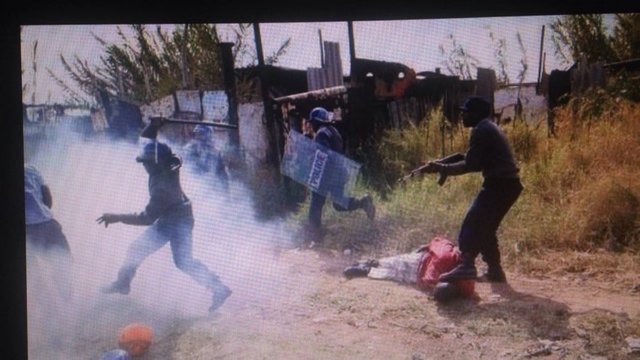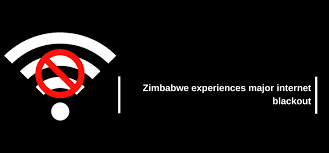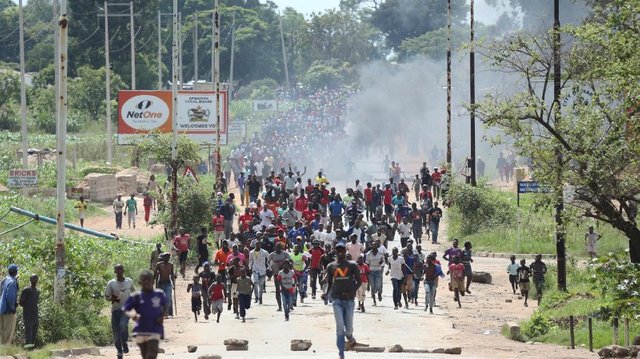Deadly consequences of centralised Internet in the hands of despots. The reality of a world without Skywire.
Zimbabwe, Southern Africa. This landlocked country has known it’s fair share of troubles over the last few decades. Hyperinflation, caused by poor economic policies and a land reform program which saw agricultural outputs responsible for one third of the country’s foreign exchange earnings plummet to virtually zero, peaked at an estimated 500 Billion percent in 2008. As agricultural output plummeted, Robert Mugabe’s government printed vast amounts of Zimbabwe dollars in a doomed attempt to ride out the crisis. Shops raised prices several times a day and, in 2008, a 100-trillion-dollar note was introduced — though it could barely buy a loaf of bread as supplies ran out and the economy imploded. After several drastic devaluations, Zimbabwe abandoned its currency in 2009 in favour of the US dollar.
The Zimbabwean economy is still in ruins with government unable to fund basic public services, rampant unemployment, and large scale emigration. Being the resourceful and resilient creatures which we humans are though, the people of Zimbabwe forged ahead and made do with whatever scarce US Dollar bills were available but more often than not economic activity was conducted through barter, informal trade and, interestingly, increasingly through crypto. The Zimbabwean Reserve Bank slapped a ban on cryptocurrencies but despite this, crypto thrived. Due to its inherent characteristics, cryptocurrencies have made the cut as a perfect means of exchange for 10 million Zimbabweans.
In November 2017, a military coup saw Robert Mugabe removed from the presidency which he has been occupying for almost 40 years and replaced by Emerson Mnangagwa, former vice president and the main rival of Mugabe’s wife in the struggle to follow Mugabe as president.
Life for ordinary Zimbabweans carried on as usual. Long queues for fuel and basic commodities were taken in stride while many families survived solely on the few Dollars which family members who were employed abroad managed to send home every month. Despite having to fork out for the second most expensive data in Africa at $25 per GB, ordinary Zimbabweans remained on line and in touch. All of this came to an abrupt end when their government announced a fuel price increase on the 14'th of January this year. This was no ordinary increase though. This was a 150% increase. Overnight fuel went from $1,34 per litre to $3.31 per litre and all hell broke loose.
Thousands of Zimbabweans took to the streets to protest the increase and the resulting decline in standard of living and increasing poverty levels. Widespread civil unrest was coordinated via the Internet a-la the Arab spring and government responded by deploying police and military. Quickly reports of extreme violence perpetrated by the government forces started circulating which resulted in government ordering an Internet shutdown.
While some tech savvy Zimbabweans managed to stay on line by using VPN’s, the majority found themselves cut off from each other and the world at large. This cloak of Internet silence provided the government with the cover it needed to do what governments do best. The jackboot of tyranny descended on the face of humanity. (Apologies to George Orwell).

Riot police and the military were unleashed on an unarmed population. Violent beatings were at the order of the day and live ammunition was used against protesting civilians. Reports in the main stream media were censored and the usual agenda of underplaying the reality of the situation was used. Media outlets reported 5 casualties to the world at large while the truth was conveniently kept at bay behind the Internet blackout curtain.
The footage bellow was smuggled out of Zimbabwe during the Internet shutdown and shows truckloads of dead protesters. A far cry from the 5 casualties reported on by MSM.
hat transpired in Zimbabwe should serve as the sobering proof that, in the absence of a free and uncensored Internet, those in power can and will smite any and all who oppose their agenda. More often than not it is only the threat of public scrutiny which keeps tyranny in check. One can only Imagine how differently events would have unfolded if Skywire, the fully decentralised, encrypted and community owned Internet was deployed and fully operational in Zimbabwe……

